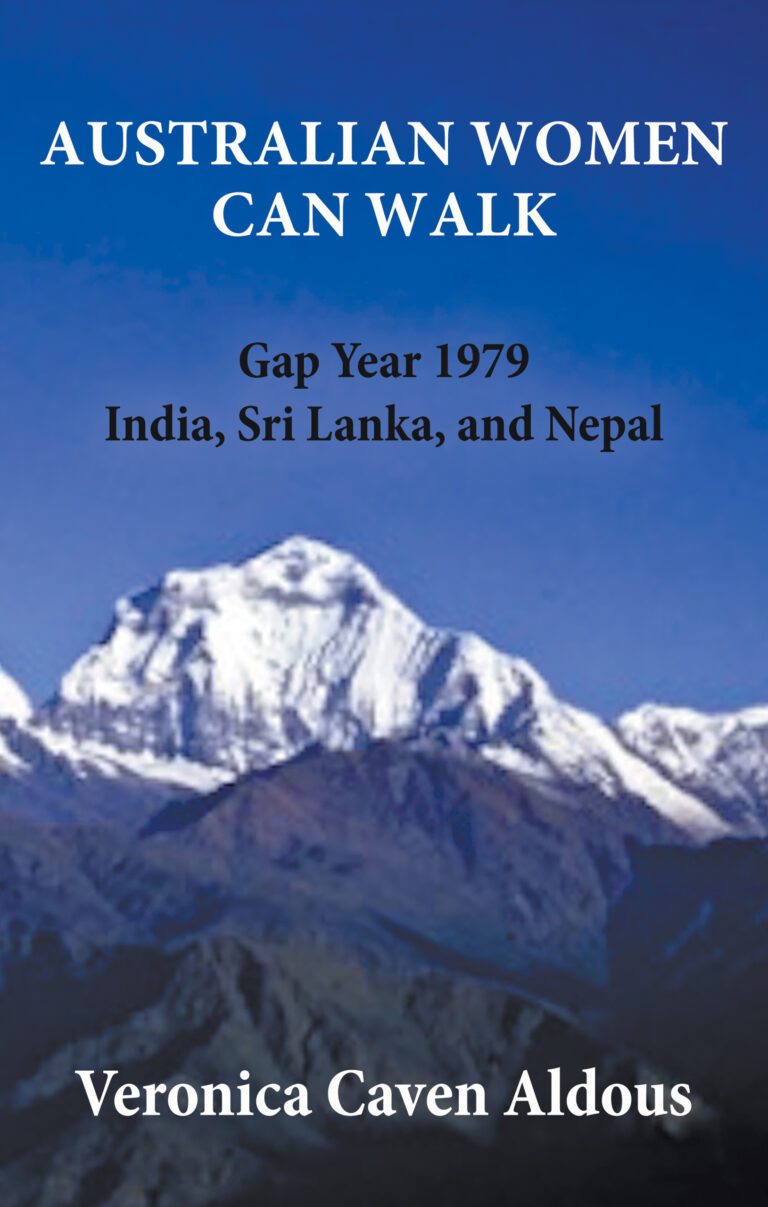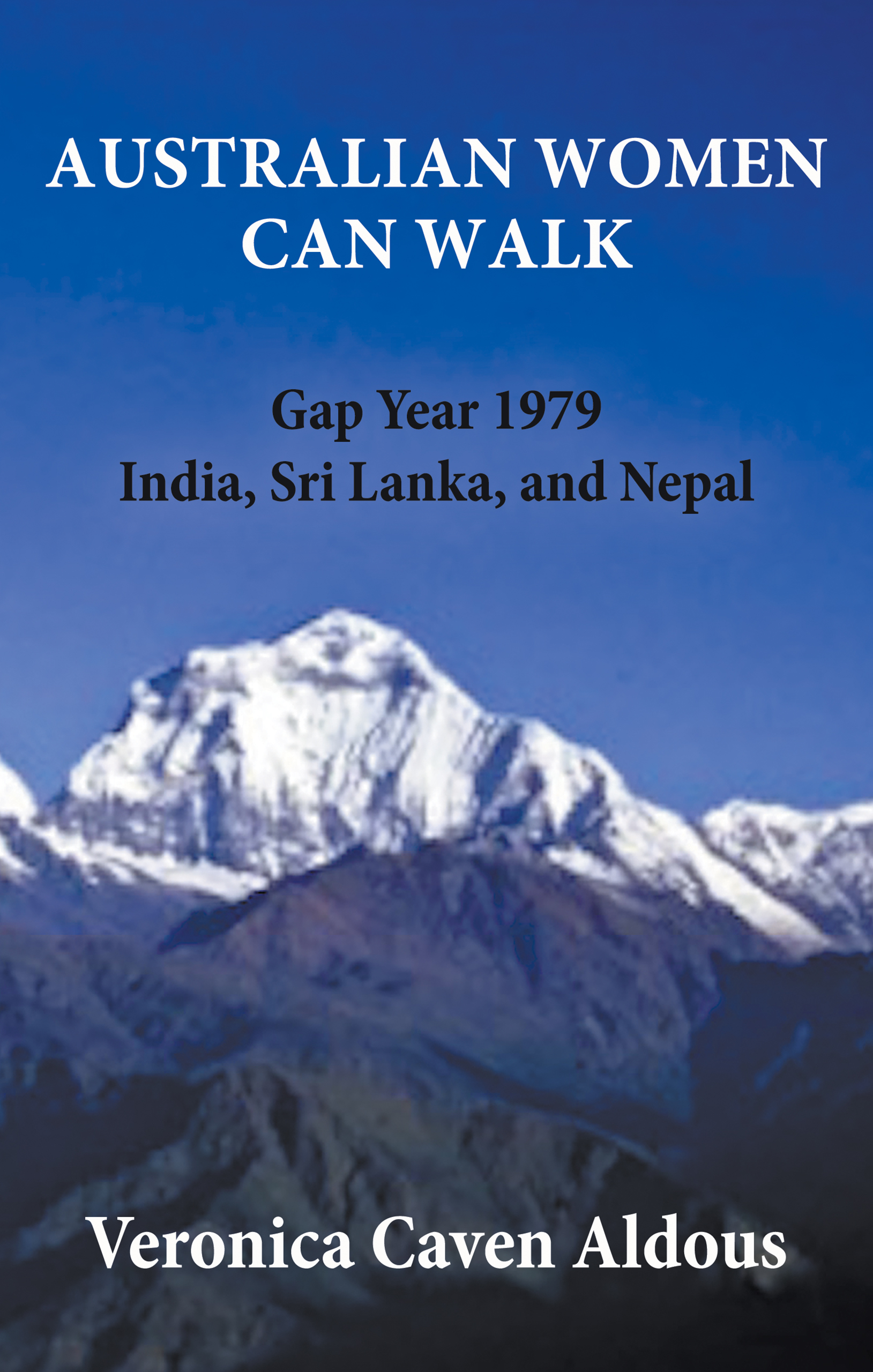Veronica Caven Aldous’s AUSTRALIAN WOMEN CAN WALK begins in 1979. The author, “twenty-two and a quiet, self-sufficient kind of person,” leaves her native Melbourne to visit India, Sri Lanka, and Nepal with two male friends. That was not the original intention; Europe had beckoned first. But in true backpacker style, Aldous lingered in places that fascinated her, drifting first here, now there, rattling off destinations—Srinagar, Delhi, Mumbai (apprehended here as Bombay), and then on to Sri Lanka and elsewhere—with regularity.
Aldous comes across as a personable companion. Having overcome some early travel anxiety, she took in the places and people around her, reading voraciously all the while. Sartre, Hesse, Plato, Asimov, Borges, the Bhagavad Gita, any number of texts about Indian religion, texts about the Indian system of alternative medicine known as Ayurveda, and so on fall under her gaze. Yoga and meditation feature strongly.
As one might expect, the account has the distinct feel of being worked up from a diary. Such journal entries are, of course, quite usual source material for memoirists writing at a distance from the events they describe. But more judicious editing would have improved the work, as there is too much of the humdrum present to make for a really smooth account: too many minor anecdotes lead nowhere, such as throwaway references to finding a mouse in the toilet, or someone having a swim in someone else’s shorts. At times, there are also abrupt switches of tense—as diary passages are here and there rendered in the present, and therefore sit uneasily with the longer, more dominant sections in past tense. On occasion, references are not consistent either. Early on, for example, the book briefly mentions that one of Aldous’s Indian acquaintances is worried about “the Apollo satellite”—a baffling observation, until one realizes that the Skylab space station, long since abandoned, was due to fall to Earth in 1979 and no one was quite certain where it would re-enter. A few dozen pages later, the “Skylab is falling” issue is mentioned again, but again without context. Regularizing the terminology here would make for a less jolty read.
One point of interest, albeit a somewhat grim one, is how the sense of adventure that so energized Aldous—who was, by her own admission, middle-class and naïve—was tinged with concern for her safety as a single woman who spent long periods traveling alone: stories of being followed around on her travels by strange men, or being hit on by tour guides, are depressingly frequent.
Perhaps the most affecting aspect of AUSTRALIAN WOMEN CAN WALK is the abiding imagery of a world gone by—a world in which backpackers still communicated by letter, one found one’s way with paper maps or oral directions, and there were no Yelp reviews to guide you to the nearest tourist hangout.
Veronica Caven Aldous’s AUSTRALIAN WOMEN CAN WALK is an unevenly edited but engaging account of the author’s gap year in the late 1970s.
~Craig Jones for IndieReader


